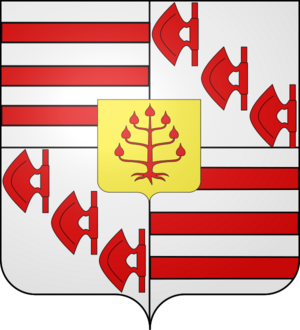Érin facts for kids
Érin is a small town, also called a commune, located in the northern part of France. It is found in the region called Nord-Pas-de-Calais, specifically within the Pas-de-Calais department.
Contents
What is Érin?
Érin is a quiet commune in France. A commune is like a local government area. It is similar to a small town or village. Érin is part of the larger Pas-de-Calais department. This department is known for its history and beautiful landscapes.
Where is Érin located?
Érin is in northern France. This area is close to the border with Belgium. It is part of the Nord-Pas-de-Calais region. This region has a rich past. It also has many interesting places to visit.
Érin's Place in France
France is divided into regions and departments. Érin is a tiny piece of this big puzzle. It helps make up the unique character of the Pas-de-Calais department. Many small communes like Érin exist across France. They each have their own local life.
Life in Érin
Life in a small commune like Érin is often peaceful. People usually know their neighbors well. The community might have local events. These events bring everyone together.
What do people do in Érin?
People in Érin likely work in local jobs. Some might work in farming. Others might work in small businesses. Many people also commute to larger towns nearby. They go there for work or shopping.
Community Spirit
Small towns often have a strong community spirit. Residents might help each other out. They might also celebrate local traditions. This creates a friendly atmosphere.
History of Érin
Like many places in France, Érin has a long history. Its roots likely go back many centuries. Over time, it has seen many changes. These changes have shaped the town.
How old is Érin?
The exact age of Érin is hard to say. Many French communes have medieval origins. This means they started hundreds of years ago. Érin might have grown from a small settlement.
Érin Through the Ages
Throughout history, Érin would have been influenced by major events. Wars and changes in government affected daily life. Yet, the commune has continued to exist. It keeps its unique identity.
See also
 In Spanish: Érin para niños
In Spanish: Érin para niños
 | Jessica Watkins |
 | Robert Henry Lawrence Jr. |
 | Mae Jemison |
 | Sian Proctor |
 | Guion Bluford |


